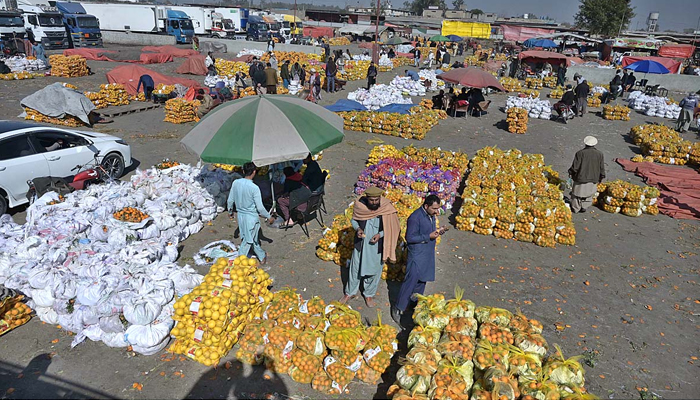Small businesses
Large companies survive because most have diverse portfolios; gloom in one sector is compensated by buoyancy in another sector
LAHORE: Economies in the past have grown from ruins, but the recovery is always painful for the common man. Businesses, particularly big businesses, survive or even thrive during economic downturns.
The large companies survive because most have diverse portfolios; gloom in one sector is compensated by buoyancy in another sector. The small businesses that mostly rely on a specific sector usually cave in during prolonged downturns, as has happened in Pakistan. The small businesses might feel the same pain that is felt by the man on the street in economic gloom.
Governments usually try to facilitate the smaller businessmen in avoiding closures, but not so in Pakistan. In fact, smaller businesses in our country face financial exclusion from the formal sector. They rely on informal loan sharks or family friends for their financial needs.
When the economy is declining, these small businesses find it hard to survive. In fact, many close after a period of one or two years. Our recession has prolonged beyond two years. These small businesses owe huge amounts to either loan sharks or family friends.
Their inability to pay back has created social chaos. Unemployment in our country is on the rise and has increased poverty. All the new poor are not the ones that have lost jobs, but they include millions of small businesses that lost all their resources and are mired in debt.
Pakistan is in a helpless position. There may be some countries and institutions that want to help Pakistan, but they are at a loss how to do it. They need commitment from whoever assumes power to come out of the public appeasing mode and push real reforms. There is an impression being created that reforms would be painful for the common man. This may be true in some cases like power, gas and petrol rates, but most of the pain in this regard has already been passed on to the public.
The second set of reforms relate to the rich and influential. The institution desires that all exemptions provided to any individual, firm or sector must be withdrawn forthwith.
They should charge taxes and levies that all others pay. The donors and friends of Pakistan insist that the culture of special SROs be abolished totally. It is through these special SROs that the ruling party obliges its leaders, friends and secret financiers with special permissions to bring in some hot sell item at very low duty.
The window of these special SROs lasts for a brief period and the beneficiary is already asked to arrange imports to ensure that the goods arrive by the time the SRO is announced. No other importer has the chance to bring those goods in that brief period.
The donors want to revamp the power sector and eliminate corruption to bring it into profit. It is because of power theft done with the connivance of power sector staff that makes power costlier. Plus, the corruption in procurement further dents its viability. This needs good governance based on rules and strict accountability of those who violate rules.
These measures would not bring any hardship for the masses but check the accumulation of unethical wealth. The donors want the rich to be properly taxed and every citizen be provided with a level playing field to move ahead. These measures do not impact the masses but are most difficult to implement.
-
 Jessie Buckley Utters 'wild' Remarks For 'Hamnet' Co-star Emily Watson At Actor Awards
Jessie Buckley Utters 'wild' Remarks For 'Hamnet' Co-star Emily Watson At Actor Awards -
 Who Could Replace Ayatollah Ali Khamenei? Iran’s Top Successor Candidates Explained
Who Could Replace Ayatollah Ali Khamenei? Iran’s Top Successor Candidates Explained -
 Oliver 'Power' Grant Cause Of Death Revealed
Oliver 'Power' Grant Cause Of Death Revealed -
 Michael B. Jordan Makes Bombshell Confession At Actor Awards After BAFTA Controversy: 'Unbelievable'
Michael B. Jordan Makes Bombshell Confession At Actor Awards After BAFTA Controversy: 'Unbelievable' -
 Prince William Willing To Walk Road He ‘loathes’ For ‘horror Show’ Escape: ‘He’s Running Out Of Allies Fast’
Prince William Willing To Walk Road He ‘loathes’ For ‘horror Show’ Escape: ‘He’s Running Out Of Allies Fast’ -
 Pentagon Says No Evidence Iran Planned Attack On US, Undercutting Strike Justification
Pentagon Says No Evidence Iran Planned Attack On US, Undercutting Strike Justification -
 Prince William’s Changes Priorities With Harry After Kate Middleton’s Remission: ‘It Couldn't Be Worse’
Prince William’s Changes Priorities With Harry After Kate Middleton’s Remission: ‘It Couldn't Be Worse’ -
 Justin Bieber Gets Touching Tribute From Mom Pattie Mallette On Turning 32 Amid Limited-edition Birthday Drop
Justin Bieber Gets Touching Tribute From Mom Pattie Mallette On Turning 32 Amid Limited-edition Birthday Drop -
 Jada Pinkett Smith Details How Her Memoir Combats 'shame' Around Alopecia
Jada Pinkett Smith Details How Her Memoir Combats 'shame' Around Alopecia -
 Harrison Ford Reflects On Career As He Receives Life Achievement Award At 2026 Actor Awards
Harrison Ford Reflects On Career As He Receives Life Achievement Award At 2026 Actor Awards -
 Timothee Chalamet's Red Carpet Date For Actor Awards Not Kylie Jenner This Year
Timothee Chalamet's Red Carpet Date For Actor Awards Not Kylie Jenner This Year -
 Weather Forecast For Tomorrow: Wintry Mix Overnight And Warmer Temps Midweek
Weather Forecast For Tomorrow: Wintry Mix Overnight And Warmer Temps Midweek -
 Keith Urban 'solitary' Life Laid Bare After Nicole Kidman Split
Keith Urban 'solitary' Life Laid Bare After Nicole Kidman Split -
 SAG Actor Awards 2026 Winners: Complete List
SAG Actor Awards 2026 Winners: Complete List -
 UK Asylum System Faces Changes As Refugees Will Get Temporary Protection Only
UK Asylum System Faces Changes As Refugees Will Get Temporary Protection Only -
 Meghan Markle Has Realised ‘star Power’ Is Not Enough After Jordan Trip
Meghan Markle Has Realised ‘star Power’ Is Not Enough After Jordan Trip




